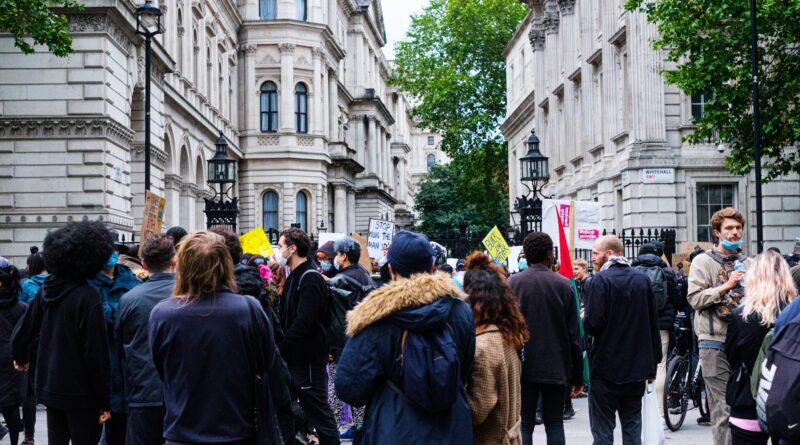Brits overseas to be given ‘vote for life’ while voting in UK may become more difficult
British citizens overseas will be given the right to vote in UK general elections regardless of how much time they have spent abroad. Voting will also become easier for them, the UK government has announced. But civil rights campaigners are concerned about new restrictions for voters in the UK.
Under the present law, Britons lose the right to vote if they have lived abroad for more than 15 years. The government, however, announced the intention to scrap the rule in the Queen’s Speech, as part of this year’s programme. More details were published on May 27.
“In an increasingly global and connected world, most British citizens living overseas retain deep ties to the United Kingdom. Many still have family here, have a history of hard work in the UK behind them, and some have even fought for our country,” said Minister of State for the Cabinet Office Lord True presenting the measures.
The right to vote for Brits abroad has been discussed for decades. In 1983 the UK parliament home affairs committee recommended to grant voting rights to UK citizens living in the then European Economic Community. A law passed in 1985 allowed British residents overseas to register to vote for 5 years after they left, a limit extended to 20 years in 1989 and reduced to 15 years in 2002. Ahead of recent elections, the Conservative party promised to restore the ‘vote for life’, but the reform never succeeded.
‘Vote for life’
The elections bill planned this year should scrap the 15-year limit and make voting easier for Britons abroad.
Measures will include a requirement for electors to register once every three years instead of every year, as many people struggled to enroll in time in unexpected elections such as those of December 2019.
When renewing the registration, overseas electors will be able to apply for a postal or proxy vote. They will also be able to vote in person if they will be in their constituency on polling day.
Sue Wilson, Chair of Bremain in Spain, a campaigning group to protect the rights of UK citizens in Spain, added: “The news this week represents a significant step forward in our long battle to restore our democratic voting rights. Though many won’t actually believe the government will follow through this time until they have a ballot paper in their hands, I do believe we are finally on our way.”
British in Europe, a coalition representing UK citizens living in EU countries, also welcomed the plan, a “long overdue” reform of a system described as a “hot mess of contradiction and inconsistency”.
The group noted that many British citizens have paid or still pay taxes and national insurance in the UK, have strong family and community ties with the country or children studying there, so it is logical they should have a say.
“If the Government is serious about its Global Britain agenda, it should be forging links with its overseas nationals as a key form of soft power. Restoring our votes for life would be the first step towards recognising the pivotal role that we can play,” their statement says.
ID and postal vote requirements
But while the government intends to make voting easier for Britons abroad, voting may become more difficult for some electors in the UK.
The new bill will also aim to “tackle electoral fraud” by requiring voters to show photo IDs from next elections.
At present, people voting at polling stations are only requested their name and address. Showing an ID will avoid someone casting another person’s vote, the government argues.
A “broad range” of documents, both valid and expired, will be accepted as a proof of identity, according to details published this week. These will include passports and driving licences, concessionary travel passes, Ministry of Defence identity cards, photocard parking permits issued as part of the Blue Badge scheme, and free voter cards issued by local authorities. The government says 98% of electors already own one of these forms of identification.
Several politicians and civil rights groups, however, warned this measure will exclude parts of society from democratic participation.
The Electoral Commission, an independent body that sets standards on how elections should be run, said that marginalised groups could be disadvantaged because, unlike in mainland Europe, in the UK there isn’t a mandatory national ID card and the poorest are the least likely to have a form of ID.
“Many citizens who can’t afford to go on foreign holidays don’t have passports, and those that can’t drive don’t have driving licences,” the Commission warned. Those that can take time off to request ID documents are also the most likely to already have ID, the organisation added.
Upcoming changes also concern postal and proxy votes. People registered for a postal vote will have to reaffirm their identity by re-applying every three years (currently registration is indefinite). The number of postal votes that a person may hand in on behalf of others will be limited and it will become an offence for a person to attempt to find out or reveal who a postal elector has voted for. The total number of people for whom someone can act as a proxy will be limited to four.
“The question of who gets to vote goes to the heart of the relationship between a citizen and the state,” British in Europe said expressing concerns at measures that will make it harder for certain groups to vote.
“It’s just a terrible shame that the bill that aims to restore voting rights to Brits abroad also aims to disenfranchise others in the UK. Much as I want my voting rights guaranteed for life, I would prefer it was not at someone else’s expense,” Sue Wilson commented.
Claudia Delpero © all rights reserved
Photo via Unsplash
Europe Street News is an online magazine covering citizens’ rights in the EU and the UK. We are fully independent and we are committed to providing factual, accurate and reliable information. As citizens’ rights are at the core of democracy, our website and newsletter are available for free. If you found this article useful, please consider making a contribution so we can continue and expand our coverage. Thank you!




